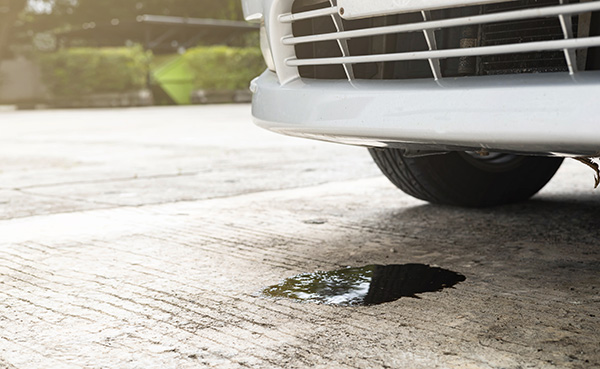
You pull into your driveway, park your car, and as you step out, something catches your eye—small, dark oil spots on the ground. It’s easy to brush off as no big deal, but ignoring those oil spots could lead to bigger problems in the future. Oil is required to keep your engine lubricated, and an oil leak can signal potential damage to your vehicle’s systems. If you’ve recently noticed these spots, it’s time to investigate what might be going on under your car. Let’s walk through the possible causes and what you should do about it.
Where the Oil Might Be Coming From
Oil spots can originate from several different parts of your vehicle, so identifying the source is the first step. Most commonly, oil leaks come from the engine, but they can also come from other components like the transmission or power steering system. When oil seeps out of these areas, it drips down and forms those concerning little puddles you see on the ground.
If you're familiar with car maintenance, you can try to inspect the area where the leak seems to be coming from, but if you're not, don’t worry—this is something that’s best left to a professional. A quick inspection by a technician can pinpoint whether it’s a minor leak or something more serious.
Common Causes of Oil Leaks
There are a few reasons why oil might be leaking from your car, some more serious than others. Here are a few of the usual suspects:
- Worn Out Gaskets or Seals: Over time, the gaskets and seals in your engine can break down. When they do, oil can start to seep through, leading to leaks.
- Damaged Oil Pan: If you’ve ever driven over a rock or rough terrain, you might have damaged your oil pan without even realizing it. A dented or cracked oil pan can easily cause oil to leak.
- Loose or Damaged Oil Filter: Sometimes, an improperly installed or damaged oil filter can be the culprit. The oil filter helps keep contaminants out of the oil, but if it’s not sealed correctly, you’ll end up with leaks.
- Broken Valve Cover Gasket: The valve cover gasket seals the top of the engine and can be prone to wear over time. If this gasket fails, oil will drip down onto other engine components.
- Overfilled Oil Reservoir: While it may seem counterintuitive, too much oil in the system can cause pressure build-up and lead to a leak. Always make sure you’re filling to the recommended level.
Is an Oil Leak Dangerous?
Yes, it can be. Oil is essential for keeping your engine running, and when your car is losing oil, it increases the chances of engine damage. If the oil level drops too low, your engine parts will start to grind together, leading to severe damage and possibly engine failure. Oil leaks create a fire hazard if the oil comes into contact with hot engine parts, such as the exhaust manifold.
On top of that, oil leaks can make a mess of your driveway, and oil on the ground is harmful to the environment. So, while small leaks might seem like an inconvenience, they can escalate into major issues if left unaddressed.
What Should You Do If You See Oil Spots?
If you notice oil spots under your car, don’t ignore them. Here’s what to do next:
Check Your Oil Level
Use your car’s dipstick to check how much oil is left in the system. If the level is low, top it off but avoid overfilling. However, adding oil is just a temporary fix—you’ll need to address the source of the leak soon.
Monitor the Leak
Try to gauge how much oil is leaking and how quickly it’s happening. Is it just a few drops, or is there a small puddle forming each time you park? Keep track of the frequency and amount of oil leakage.
Book a Professional Inspection
Even if the leak seems minor, it’s best to get it checked out sooner rather than later. Our technicians can quickly identify where the oil is coming from and recommend the necessary repairs.
Avoid Driving Long Distances
Until the leak is fixed, try to avoid driving your car too much. Without enough oil in the engine, you risk causing extensive damage.
How to Prevent Future Oil Leaks
While some oil leaks are inevitable with wear and tear, proper maintenance can help reduce the likelihood of future leaks:
- Regular Oil Changes: Keeping up with regular oil changes ensures that your oil stays clean and doesn’t break down, reducing strain on gaskets and seals.
- Inspections: During each oil change, have your vehicle inspected for potential leaks.
- Drive Cautiously: If possible, avoid driving over potholes or rough surfaces that could damage your oil pan or other vulnerable parts under the car.
Have you noticed oil spots under your car recently? Don’t wait until it leads to major engine damage. Bring your vehicle to Rix Automotive for a thorough inspection and prompt repair.